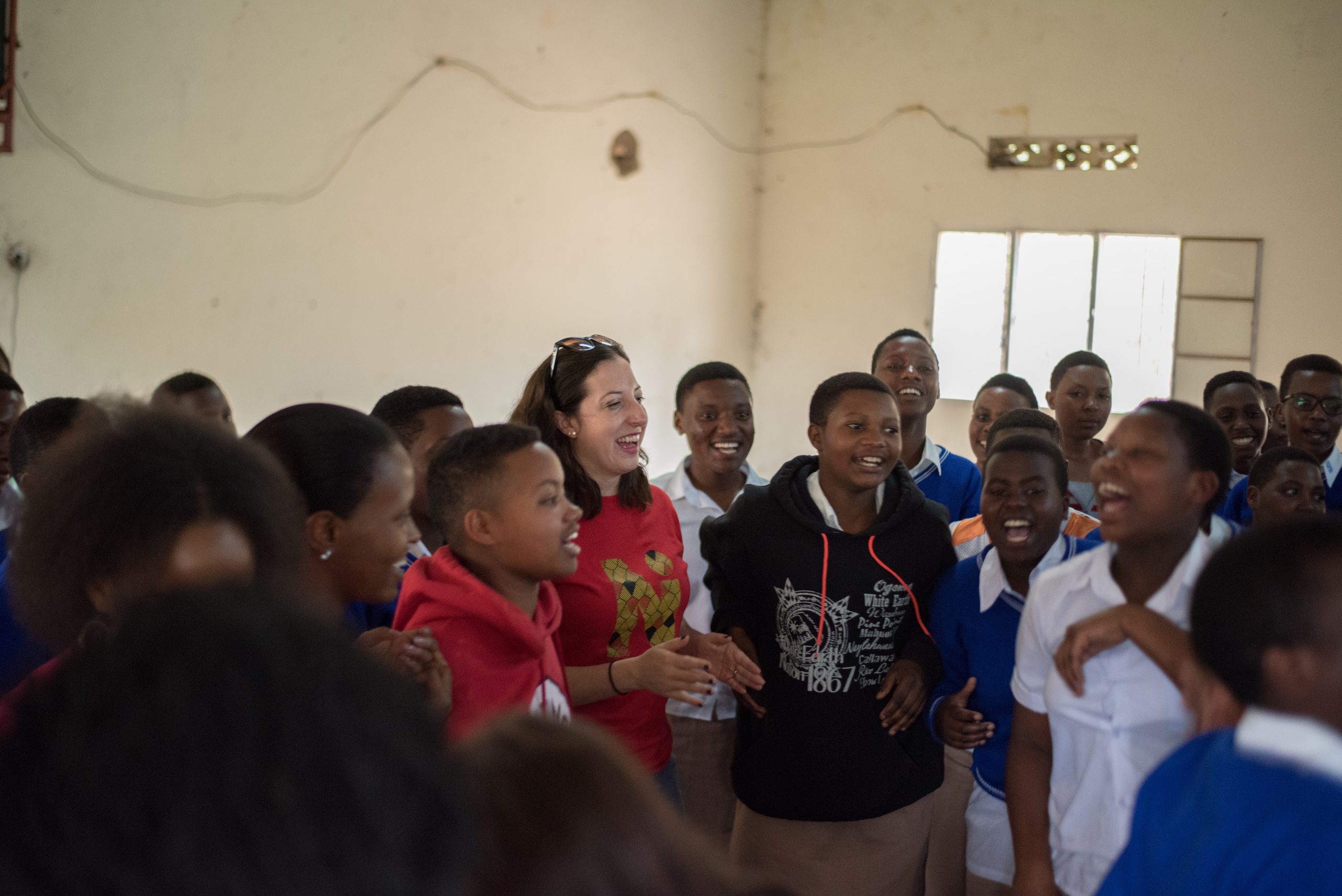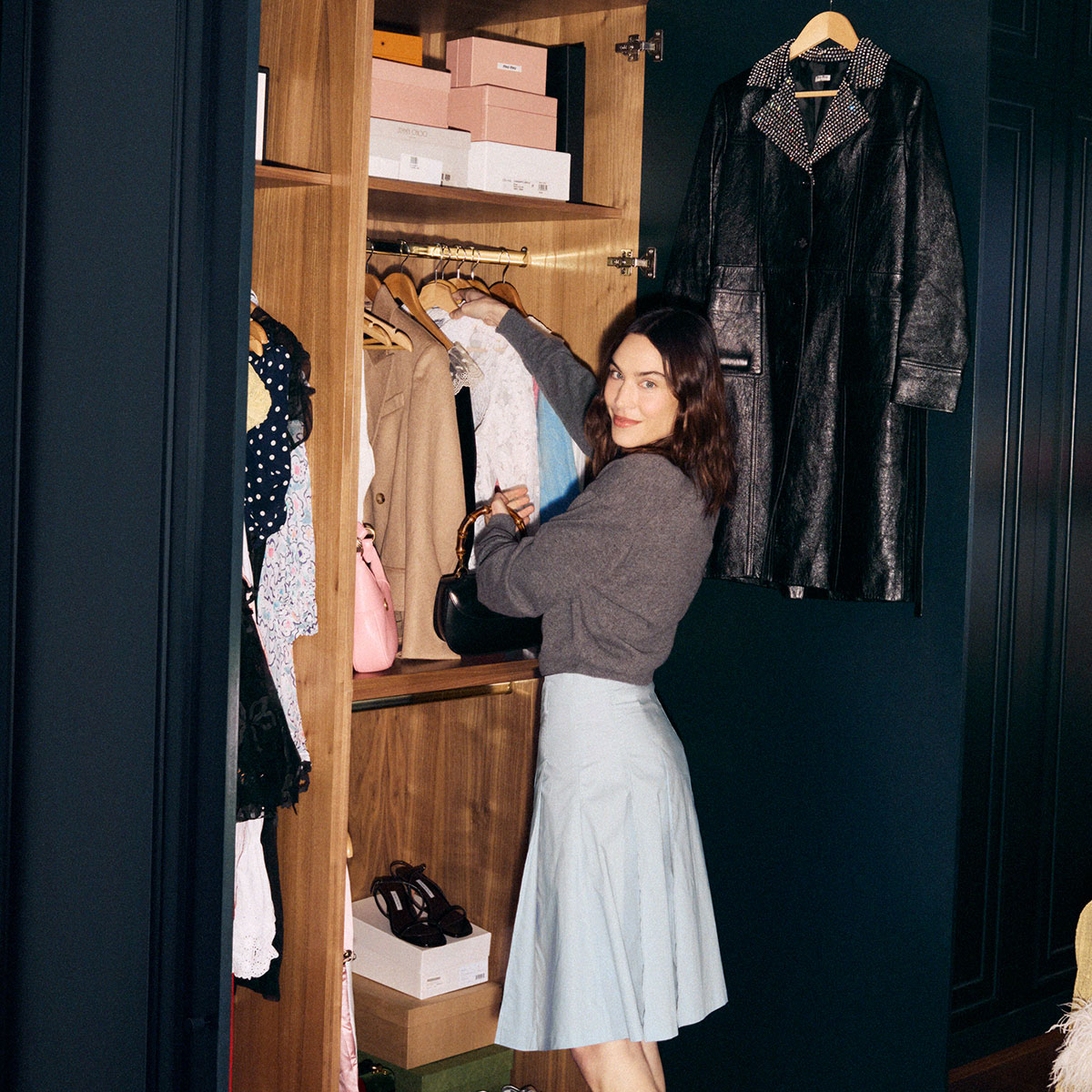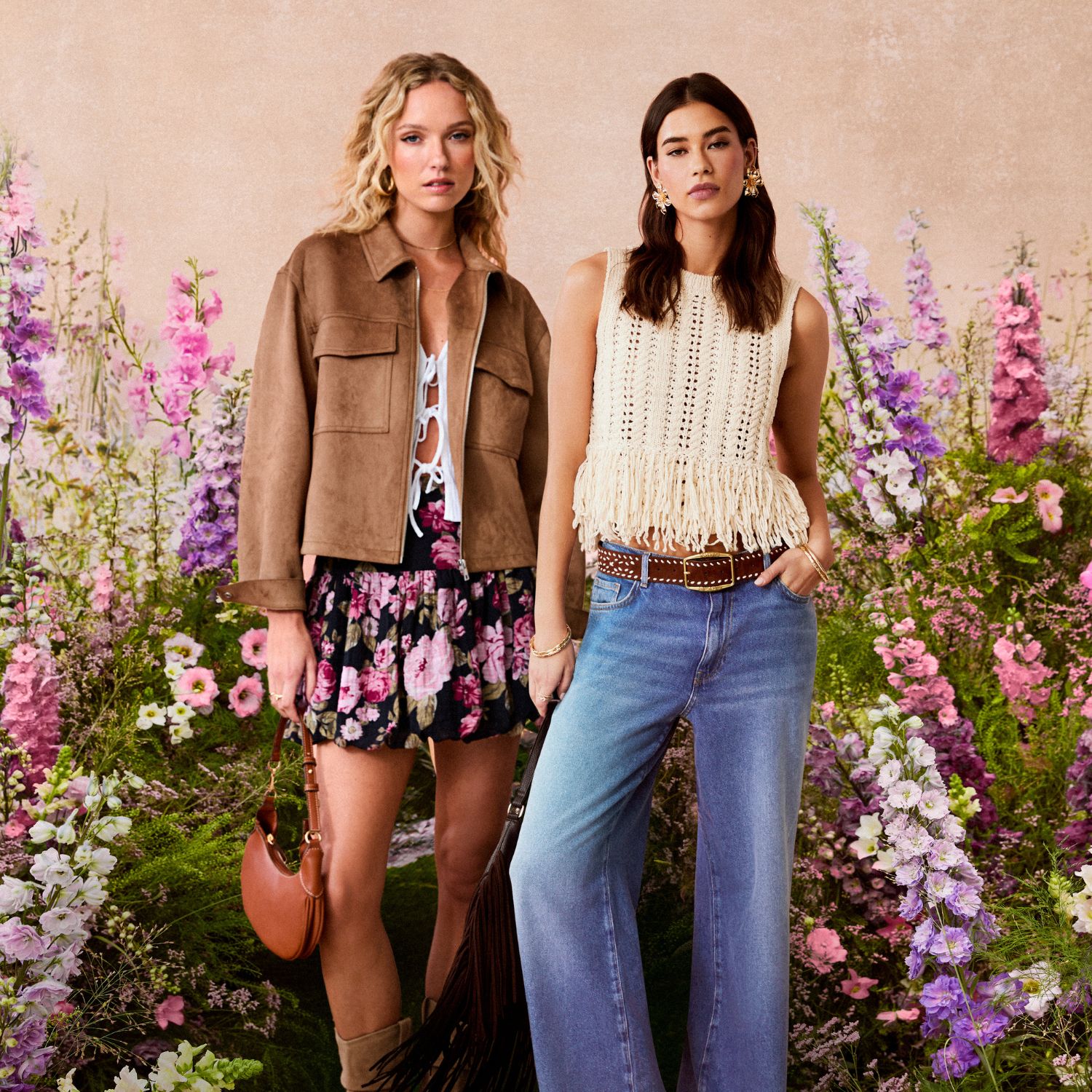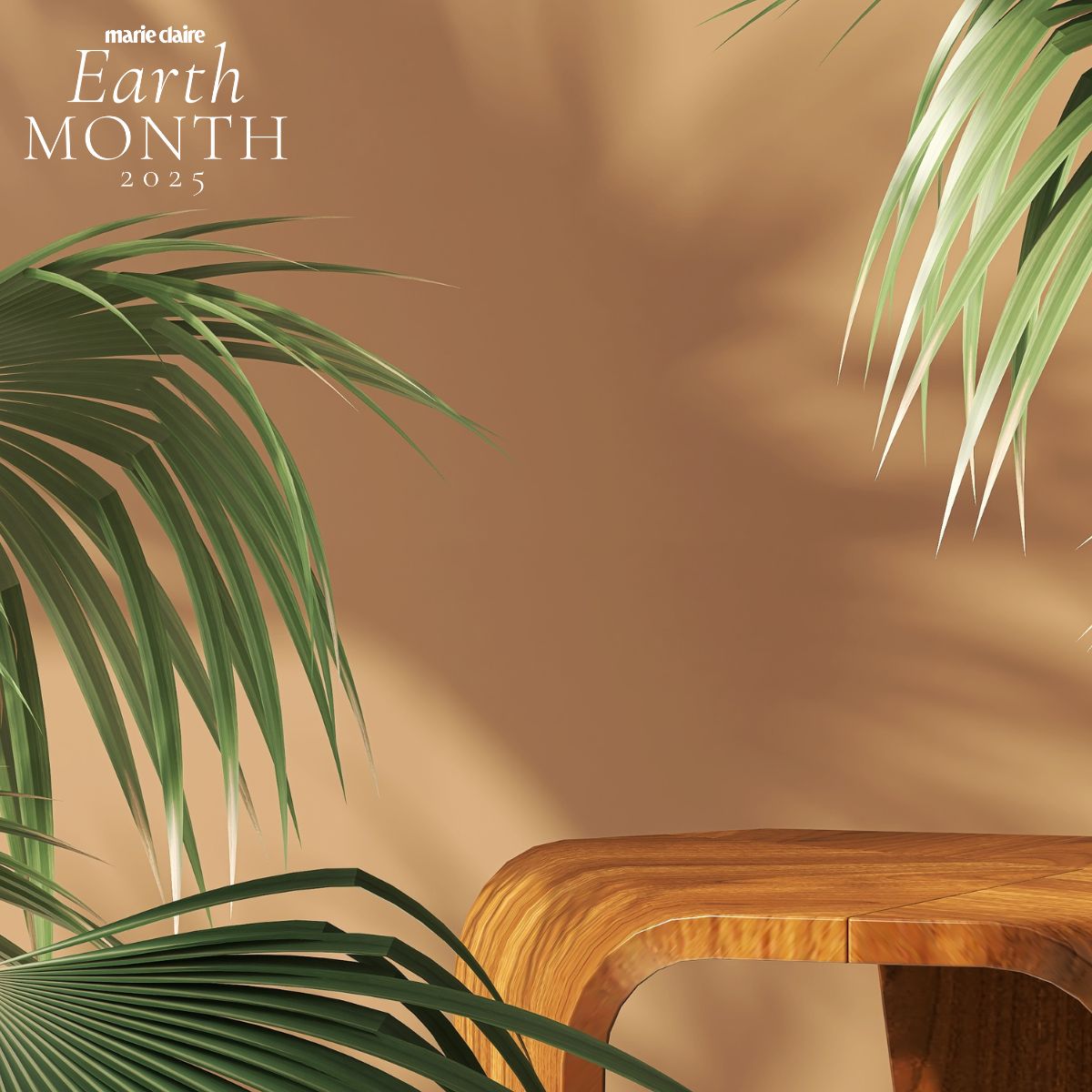Women Who Win: Jess Posner Odede on using tech and media to empower girls

Next in our Women Who Win Series, Emily Ferguson caught up with the inspirational Jess Posner Odede to talk about her inspiring work as the CEO of Girl Effect. What she's learnt through connecting over 10 million girls with content that helps them make choices (and changes in their lives) and how, through technology, they've all navigated the pandemic...
Tell us a little bit about yourself? I was born and raised in Colorado but, for the last fifteen years, Nairobi has been my home. I first visited when I was 21 as part of my degree at Wesleyan University. It’s where I met my husband and where we live with our three beautiful children - they're all under the age of three so it’s a busy but wonderful time right now! I want to make a real difference in the world - that is what motivates me. Even when I have one of those days where it all feels like it’s getting on top of me, I am lucky enough to love what I do and that keeps me going.
Who's your greatest hero? Graça Machel is an incredible champion of young people. Her constant work and leadership advancing gender equality through the Graça Machel Trust and as Deputy Chair of The Elders (the organisation she founded alongside her husband the late, Nelson Mandela), is so inspirational. I’m honoured that Graça has been a trusted advisor and friend to me over the years. She's a passionate believer in what we call ‘the girl effect’ - the principle that investing in girls has a ripple effect. That when girls are empowered and inspired to reach their potential and take control of decisions in their lives, it inspires others to do the same and impacts her family, her community, her country.
What inspired your choice of career? I studied health, society and development at university and as part of my degree, I spent time living in Kibera in Nairobi - the largest slum in Africa. Whilst there I was introduced to Kennedy, my now-husband, who was transforming his community. He was looking to scale an idea of providing critical services, community advocacy platforms and education for girls and women living in urban slums. Together we co-founded Shining Hope for Communities (SHOFCO) and together we spent 12 years building the organization to over 600 employees, in 22 geographies, improving the lives of more than 2 million people across Kenya.
So, my perspective was framed about what was needed to make change happen and based on the insight that people closest to the problem, know what the solutions are. Over the last 12 years, I have had the privilege to know and be inspired by so many amazing girls. I’ve experienced their struggles, seen their potential and lack of resources to support them. I was drawn to Kibera by the resilience of a community and its leaders who dared to imagine a better future. This same thread drew me to Girl Effect in 2019 - I have befriended, lived and worked with girls who know what they need and want. Girl Effect gave me the opportunity to build from being an ally to working to combat these challenges on a global scale.
What media inspired you growing up? For me, all media is about a sense of belonging, about being part of a group. Music sticks in my memory most vividly - I grew up in the era of the boyband and I can still remember the friendships formed around Backstreet Boys (Nick Carter still has a special place in my heart!) In a way, that’s a lot of what we do now at Girl Effect - the TV shows, the radio shows, the magazines, the social media - it’s about bringing girls together and showing them they’re not alone.
What role do you think media has in reaching girls in parts of the world that are ordinarily hard to speak to directly? Media plays a crucial role in achieving gender equality, from changing perceptions and sparking household conversation, to offering positive and relatable role models and normalising “taboo” subjects. In many of the countries across Africa and Asia that Girl Effect operates in, there is simply no media aimed at adolescent girls where they can see themselves represented, so we build the media that girls want, trust and need. From chat shows to TV dramas and social media content, we connect directly with girls to share facts and answer their questions about their bodies, puberty, sex, nutrition, education, finances, relationships and more.
Marie Claire Newsletter
Celebrity news, beauty, fashion advice, and fascinating features, delivered straight to your inbox!
We aim to help girls make life-changing decisions by using the power of storytelling to navigate decision making, change perceptions and ultimately redefine what they have been told is possible “for a girl”.
How has Girl Effect created digital experiences which are accessible and relatable to girls in different parts of the world? By listening to the stories and lived experiences of girls we make sure we are building solutions that work for their reality, not ours. Working digitally means we’re constantly having a two-way conversation listening to their needs to test and update our work. We are innovative in our application of widely available tech, often working through platforms that girls are already using. For example, we wouldn’t create a new app if we know we could reach her through WhatsApp which she is already using to chat with her friends. We would meet her there, rather than trying to draw her to a new space.
As an NGO we can’t compete with the big tech and communications companies and the investment they make in their platforms and marketing, so we work through them. That means that innovation is not about using the latest tech. It’s about using the right tech in a new way.
In Tanzania girls have limited access to the internet, so girls can use basic phones to call our national Interactive Voice Response line. It’s a way for girls to dial-up and listen to inspiring and empowering audio content on demand. This borrows from how corporations run their customer service lines - Press 1 for X or Press 2 for Y - but we’re using this tech to enable girls to listen to real-life and fictional stories about female entrepreneurs, tips for safely making money or how to save for the future. We partnered with Vodacom Tanzania Foundation to make this service free for all Vodacom users (Tanzania’s largest network provider) and to date, we've received 1.5 million calls.
In South Africa, we run an AI-powered chatbot to allow girls to access a trusted and safe space to get answers about sex and relationships on WhatsApp and Facebook Messenger. By using chat technology, we’ve created a virtual ‘Big Sis’ that can respond to every girl instantly and privately, and much more explicitly than in a magazine column or on the radio. So far, 38,000 girls have started chats with Big Sis, with over 1 million messages sent.
How has Covid-19 impacted Girl Effect’s work? The pandemic has been so devastating for so many. We had to quickly pivot to the problems presented by this and react immediately through our content to help girls cope in this new Covid-19 world. We know that restrictions and varying degrees of lockdowns being implemented all across the world are resulting in girls spending more time at home than ever before, and therefore our work in providing vital information and support through digital channels has never been more essential.
A major challenge for us was our work relies on in-depth insights from girls about how they think and feel. We knew we needed fast data about how girls were experiencing the pandemic. We run networks of 'girl researchers aged 18-24 who interview the girls within their communities about their lives and experiences using mobile phones. They are paid and trained as digital peer-peer researchers and we call them TEGAs (or Technology Enabled Girl Ambassadors). The pandemic made face-face research impossible, so we ran a project called Hear Her Voice where 29 of the TEGAs in six countries shared digital diaries with us - documenting their reality, resilience and recommendations for the support they needed so we could respond.
For example, girls in India said they struggled to access sanitary pads and sexual health services due to lockdown - so we started testing our ability to connect some of the seven million girls we reach in India through our brand, Chhaa Jaa, with home delivery of sanitary products and online consultations with doctors.
We also know that myths about vaccines can spread just as fast as the virus itself, so we have been using knowledge and insight gained from our work with Gavi (the Vaccine Alliance) in Ethiopia, Rwanda, Malawi and Tanzania - where we used our TV dramas, radio shows, magazines and digital content to challenge myths about the HPV Vaccine to motivate girls to get both doses and protect their future - as the foundation for our approach to tackle misinformation around vaccine hesitancy when it comes to Covid-19. It’s not just the virus that’s hurting girls- they face a heightened risk of gender-based violence, economic stress and also a lack of access to education, healthcare and sexual reproductive health and rights services because of the pandemic. As such, the knock-on impact of Covid-19 on girls’ lives will be felt for many years to come. We’re seeing this as a crucial moment to redesign a world that works better for adolescent girls - we need to ensure progress lost towards gender equality as a result of the pandemic isn’t permanent.
How are you ensuring girls gain access to technology when they are faced with a multitude of challenges? We are really lucky to have a long-standing partnership with Vodafone Foundation. For over 30 years they have deployed Vodafone’s technology to improve the lives of people in the communities where the company operates and in 2018 partnered with Girl Effect with an ambition to connect with and empower 7 million girls in 7 countries through mobile. With their support, we’ve significantly strengthened Girl Effect’s digital infrastructure - when you are connecting with girls you want those spaces to be safe, secure and scalable. We were also able to explore how to shift to a more digital-first approach to our work regardless of the context - because our global study into girls’ access and use of and mobile phones showed that girls in low and middle-income countries are finding ingenious ways to access information online.
Even if they don’t own a phone, they are borrowing one, and we want to be there to meet them. In India, this has meant testing our first digital-only intervention. Since mid-2019 we have connected over eight million girls exclusively using social media. In Tanzania, we were able to draw on Vodafone and Vodacom’s country expertise and platforms, bringing tailored content for adolescents onto radio and widely used IVR lines that I mentioned above. Having partners that champion your ability to test and learn as well as focussing on behaviour change outcomes is so important. We know we can take our expertise from highly successful analogue brands and media and transition to a more digital approach, we are already seeing the impact, to do that you need true partners. People who allow you to test, trial, sometimes fail and then test again. Already we’re connecting 10.1m girls with content that helps them make choices and changes in their lives - like negotiating condom use with their partners or and accessing contraception when they need it.
Learn more about Jess' inspiring work at Girl Effect and support their use of media and tech to unlock the power of girls here.
The leading destination for fashion, beauty, shopping and finger-on-the-pulse views on the latest issues. Marie Claire's travel content helps you delight in discovering new destinations around the globe, offering a unique – and sometimes unchartered – travel experience. From new hotel openings to the destinations tipped to take over our travel calendars, this iconic name has it covered.
-
 This is not a drill: you can now shop Alexa Chung's actual wardrobe on Vinted
This is not a drill: you can now shop Alexa Chung's actual wardrobe on VintedOwn a piece of sartorial history
By Penny Goldstone
-
 New Look’s spring collection has dropped—as a picky fashion editor, I’m seriously impressed
New Look’s spring collection has dropped—as a picky fashion editor, I’m seriously impressedSpring trends at affordable prices
By Jazzria Harris
-
 I'm the founder of an ethical brand marketplace - why, in the wake of tariff-gate, protecting independent businesses is more important than ever
I'm the founder of an ethical brand marketplace - why, in the wake of tariff-gate, protecting independent businesses is more important than everThis Earth Day, the founder of Wolf & Badger shares why protecting sustainable brands is so pivotal.
By Ally Head